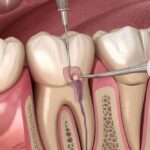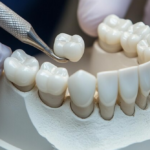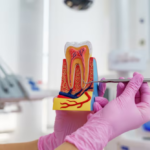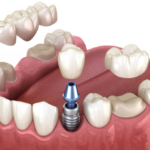When you go into the chair for a dental check-up with your dentist, there are terms you will hear, such as “preventive exam” or “diagnostic exam.” But what does that mean, and how are they different?
If you are planning to schedule a dental exam in Airdrie, it’s good to know which kind of exam you require. Preventive exams and diagnostic exams are both important, but they serve different functions. Let’s break it down for you in simple terms so you have a better understanding when you walk into the dental clinic.
What is a Preventive Dental Exam?
A preventive dental exam is the regular check-up we have all come to know; it’s a chance to assess your overall oral health. Think of this type of visit as a regular inspection of your teeth and gums. It’s a preventative measure in finding issues and solving small problems before they become larger problems.
During a preventive dental exam, your dentist will do the following:
- Review the condition of your teeth and gums to look for any signs of cavities or gum disease.
- Look for any sign that plaque or tartar may be building up.
- Make an assessment of your bite and jaw, and pass along any observations to you. If required, your dentist will take X-rays.
- Provide a short review and tips on brushing, flossing, and eating healthy in a manner that minimizes cavities and gum disease.
This type of dental exam is done at regular intervals of about every 6 months, even if your teeth feel great. Preventive dental checkups help to catch issues early, saving you time, money, and pain.
What is a Diagnostic Dental Exam?
A diagnostic dental exam is very different. A diagnostic dental exam is used when you have a problem with your teeth or gums. It could be that you have discomfort in a tooth, you have swelling in the mouth or gums, you may have bleeding gums, or you just don’t think something is right. The dentist will do a closer examination to determine what the problem is and how it can be corrected.
In a diagnostic exam, the dentist may:
- Ask you about your symptoms (e.g., have you had pain, sensitivity, etc.)
- Take specific X-rays of the affected area.
- Use special instruments to take a close look at your teeth or gums.
- Give you a treatment plan (e.g. a filling, root canal, deep cleaning, etc.)
The exam is not on a schedule. It is done any time there is a problem that needs diagnosing and treatment.
Why You May Need Both Types
Some dental appointments can include both a preventive and a diagnostic exam. For instance, if you were going in for your annual visit and you reported symptoms of tooth pain, the dentist may conduct a complete oral examination while also focusing on the area with the pain.
It is best to be honest with your dentist about what is going on in your mouth because it will help the dentist determine if you need a regular check-up, a further examination, or a combination of both.
Understanding Dental Exam Procedures
The process involved in a dental exam will vary depending on whether a routine or diagnostic exam is conducted. But here are some things you could reasonably expect during a dental exam:
- Visual evaluation of your teeth, gums, and tongue
- X-rays to get a view of cavities, bone loss, or potential hidden issues
- Gum depth measurements to see if you have signs of gum disease
- Bite evaluation to see if your teeth fit in your mouth properly
The purpose of these exams is for your dentist to see whether your mouth is healthy and to catch problems early, as well as investigate the reason you may have felt pain or discomfort.
Types of Oral Exams You May Experience
During your visit with the dentist, you may experience some different oral exam types:
- Comprehensive Examination: Typically, this would occur for new patients or patients who haven’t had an exam in a significant amount of time, where the dentist performs an assessment of everything in the mouth.
- Periodic Examination: A very routine assessment and preventative oral exam is done every 6 months and recommended for most patients.
- Problem-focused or limited: You’re coming in to see the clinician for a specific reason or concern (like a toothache or pain).
- Follow-up examination: An examination that is brief to assess after a treatment or a response to a previous issue.
Each type of exam has a purpose, and your dentist will choose the one that they believe is the best fit for you.
The Difference between Preventive and Diagnostic Exam
|
Feature |
Preventive Exam |
Diagnostic Exam |
|
Purpose |
To prevent dental problems |
To find the cause of an existing problem |
|
When it’s done |
On a regular schedule (usually every 6 months) |
When you have symptoms like pain or sensitivity |
|
Main focus |
General oral health check |
Problem-specific evaluation |
|
Common procedures |
Visual exam, X-rays, cleaning, oral health tips |
Detailed X-rays, tests, and symptom investigation |
|
Example visit reason |
Routine checkup |
Toothache, bleeding gums, or sensitivity |
|
Treatment recommendation |
Preventive care (cleaning, advice) |
Diagnosis and treatment plan (e.g., filling, root canal) |
Visiting a Dentist in Airdrie
Whether you are going to the dentist for a check-up or to ask about and deal with a sore tooth, you should only visit a dentist that you trust. A qualified dentist in Airdrie is your partner in your oral health and can clearly explain to you what they find and how it affects your oral health, as well as determine what type of exam is necessary.
Don’t simply wait until something small turns into something bigger. Taking charge of your dental health today will help protect your smile and your overall health.






